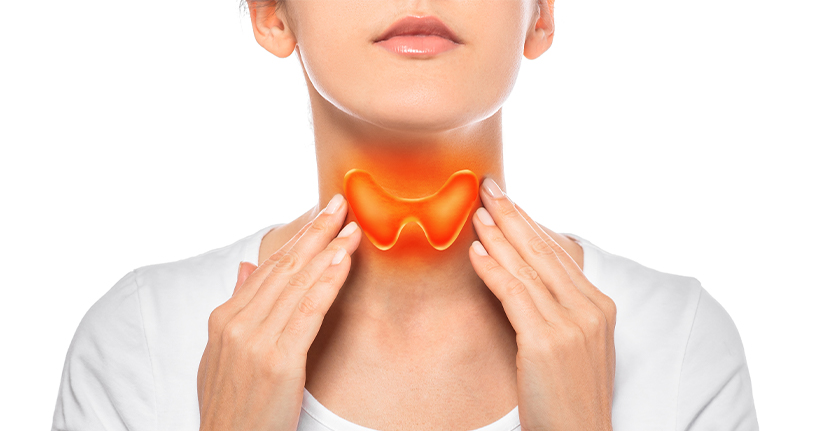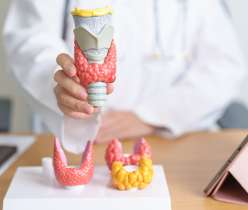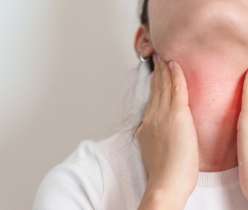Management is clear-cut, yet many patients do not reach treatment goals. The hormones thyroxine (T4) and triiodothyronine (T3), produced by the thyroid gland, are important for maintaining metabolism. Hypothyroidism (a deficit of Thyroid hormone production) is a common endocrine disorder seen in primary care. Although the diagnosis and management of hypothyroidism are considered straightforward, many patients suffering from hypothyroidism do not achieve optimal treatment goals or see a significant improvement in their quality of life. In this blog, we will learn about hypothyroidism, outline the diagnostic approach, and explain why treatment requires a precise approach to address the range of patient types.
Epidemiology of hypothyroidism
It is estimated that almost 5% of people in the USA twelve years or older have hypothyroidism; older people and women are more likely to develop the condition.
Primary hypothyroidism: It accounts for more than 95% of cases of hypothyroidism, which represents the failure of the thyroid gland to release a sufficient amount of hormone. In the United States, the prevalence of spontaneous hypothyroidism is 1 to 2%, and it is ten times more commonly reported in women.
Central hypothyroidism occurs due to insufficient stimulation of the thyroid gland by Thyroid stimulating hormone (TSH) due to pituitary or hypothalamic disease.
Causes
Some medicines can interfere with the Thyroid’s ability to produce thyroid hormone, leading to hypothyroidism. Lithium is one of the most common medicines that contributes to hypothyroidism. Other medications that can give rise to hypothyroidism are interferon alpha, amiodarone, and interleukin-2. All of these medications are more likely to trigger hypothyroidism in people who have a genetic tendency to autoimmune thyroid disorder. Newer medications used in the treatment of cancer, such as ipilimumab, nivolumab, and pembrolizumab, can trigger the production of thyroid antibodies and cause autoimmune hypothyroidism. A history of radiation to the neck, head, or chest area and a family history of autoimmune disorders are risk factors for autoimmune thyroid disease.
Signs and symptoms
The manifestation of hypothyroidism ranges from life-threatening to minimal or no symptoms. Signs of low thyroid function vary by the degree of hypothyroidism. Common symptoms of hypothyroid disease include weight gain, fatigue, brittle hair, dry skin, hair loss, muscle aches, morning stiffness, cold intolerance, diffuse headache, low libido, trouble concentrating, menstrual irregularities, and constipation. On physical examination, a patient might have hypotension, bradycardia, hypothermia with slow speech or movement, goiter, coarse facial appearance, cold hands and feet, and diffuse hair loss. Thyroid disease symptoms, such as keratosis pilaris, thickening of the skin, and pityriasis rubra pilar, can be associated with autoimmune hypothyroidism. Plantar fasciitis, carpal tunnel syndrome, small intestinal bacterial overgrowth, dyspepsia, infertility, or miscarriage can be associated with hypothyroidism; thyroid function should, therefore, be assessed in patients who have any of these conditions along with other signs of low thyroid function. An individual with severe hypothyroidism might present with hypothyroidism symptoms such as hemodynamic stability, pericardial effusion, and myxedema coma. Do not get confused with hyperthyroidism (an overactive thyroid). People often get confused with hyperthyroidism disease symptoms. There is a big difference between hyperthyroidism and hypothyroidism. Speak to your healthcare provider if you have any doubts.
Diagnosis of Hypothyroidism
Screening or thyroid tests in patients are challenging and usually not recommended unless thyroid disorder is strongly suspected. This is because changes in the levels of thyroid hormones can occur in severe nonthyroidal illness. The testing strategy and diagnosis of hypothyroidism are based primarily on laboratory testing because signs of hypothyroidism are nonspecific.
Treatment
For most patients, hypothyroidism is a permanent disorder that requires lifelong thyroid hormone replacement therapy unless the condition is transient (i.e., painless or subacute thyroiditis) because it is caused by medication or responsive to medical intervention that addresses the underlying autoimmune disorder. The aim of hypothyroidism treatment is to:
-
- Normalize the TSH levels
- Relieve symptoms
- Reduce any goiter
- Avoid overtreatment
Treatment
Hypothyroidism can’t be cured, but it can be treated and controlled in most individuals. It is majorly treated with levothyroxine monotherapy. Levothyroxine is widely sold under the brand name thyronorm 75 mcg, thyronorm 50 mcg,thyronorm 25 mcg and thyronom 150 mcg. You can also buy Levothyroxine in the form of Eltroxin 100 mcg online. Thyroid replacement treatment can worsen co-existing adrenal insufficiency. Individuals with known or suspected adrenal insufficiency should be diagnosed and treated for adrenal insufficiency while awaiting results. Adrenal insufficiency can also be associated with hypothyroidism, which is reversible with the treatment of insufficiency. In patients with confirmed adrenal insufficiency, a reassessment of thyroid tests following an adequate treatment of adrenal insufficiency is considered. It is important to rule out or treat adrenal insufficiency when a patient is suffering from severe hypothyroidism, as in myxedema coma.
Replacement with Levothyroxine
It is treated by replacing the amount of hormone that your thyroid gland can no longer make. This ensures that your Thyroid-stimulating hormone T4 and TSH remain balanced. Synthetic thyroxine, also called levothyroxine tablets (thyronorm 75 mcg), contains the T4 hormone that a healthy thyroid naturally produces. Like the T4 hormone produced in your body, each synthetic thyroxine dose works in your bloodstream for about a week. Generally, thyroxine takes up to four weeks to clear completely from the body. This lets the T4 levels in your blood stay steady, so a constant supply of T4 is available to your body cells.
Taking your thyroxine pills
Taking your treatment correctly each day is very important. Your healthcare specialist might recommend that you receive the same dose every day or different doses on different days. Following these directions allows your healthcare provider to measure how your TSH responds to therapy accurately. Thyroxine causes the replacement of the hormone that your Thyroid can no longer make. Thyroxine is unlike an antibiotic medicine, which you receive for a week or two until your fungal infection is treated. The only way to control your hypothyroidism is to take your tablet every day for the rest of your life. Sudden discontinuation without any reason can cause your hypothyroidism to return. People who have this thyroid condition without any symptoms don’t feel like taking the medicine as they feel fine. They still don’t need treatment because their body functions are slowing down even if they can’t feel it.
Summary
Hypothyroidism occurs because of low levels of thyroid hormone with varied etiology. The drug of choice for the treatment of hypothyroidism is thyroid hormone replacement.
Untreated thyroid disorder increases morbidity and mortality. In the US, autoimmune thyroid disease (Hashimoto thyroiditis) is the major cause of hypothyroidism. Thyronorm is an effective treatment for reducing the signs and symptoms of hypothyroidism. Visit your doctor to discuss the thyroid disease if you are experiencing the above symptoms.




